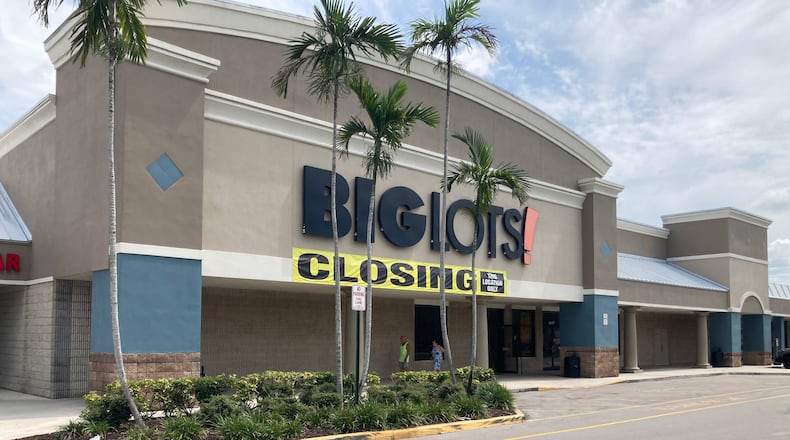Two mainstays of American shopping centers are going out of business.
Discount retailer Big Lots said this week it is closing its remaining outlets, while Party City, which recently emerged from bankruptcy, is reportedly closing its doors. The expected closures are the final chapters in the steady, protracted declines for the businesses.
Big Lots said in a statement on Thursday that it would start the process of closing all of its stores after a potential sale to an investment firm fell through. There are at least 31 Big Lots stores across Georgia.
“We all have worked extremely hard and have taken every step to complete a going concern sale,” Bruce Thorn, Big Lots’ president and CEO, said in the release. A going concern is a business, legal or accounting term for a company that will continue operating.
“While we remain hopeful that we can close an alternative going concern transaction, in order to protect the value of the Big Lots estate, we have made the difficult decision to begin the (going out of business) process,” he said.
Big Lots filed for bankruptcy in September and announced it had entered into a sale with Nexus Capital Management, a California-based investment firm, which was approved by a court in November. But a valuation appraisal of Big Lots’ inventory was lower than expected and the economics of the sale were no longer viable for Nexus, according to Bloomberg, citing unnamed people with knowledge of the matter.
Earlier this week, a group of the business’ creditors asked the bankruptcy court to make the company pay tens of millions of dollars of back rent or be liquidated, Bloomberg reported.
Party City is closing down all of its stores after four decades in business, CNN reported Friday, citing video of a meeting observed by journalists. The company’s website shows 23 locations in Georgia.
CEO Barry Litwin informed corporate employees in a meeting Friday that the retailer is “winding down” its operations immediately, according to CNN. Staff were told Friday is their final day of employment, they will not receive severance pay and their benefits will end when the company goes out of business.
“It’s really important for you to know that we’ve done everything possible that we could to try to avoid this outcome,” Litwin said in the meeting.
A message left for Party City was not immediately returned.
The move comes three months after the New Jersey-based party supply store emerged from Chapter 11 bankruptcy. Party City filed in January 2023 after struggling to pay its $1.7 billion debt, facing rising prices, growing competition with other retailers and e-commerce brands and a decline in consumer spending. The company was then delisted from the New York Stock Exchange.
A number of retailers and restaurants faced financial challenges this year. TGI Fridays, Red Lobster, Rue21 and Express, among several other chains, filed for Chapter 11 bankruptcy protection, a move that allows companies to restructure finances while continuing operations.
Other companies have also looked to cut costs outside of bankruptcy. Drugstore chains CVS, Walgreens and Rite Aid announced hundreds of closures this year combined. Macy’s announced it would cut about 3.5% of its total headcount, or about 2,350 employees, and online furniture retailer Wayfair announced it was cutting 13% of its workforce, or about 1,650 jobs.
The Atlanta Journal-Constitution and Report for America are partnering to add more journalists to cover topics important to our community. Please help us fund this important work here.






